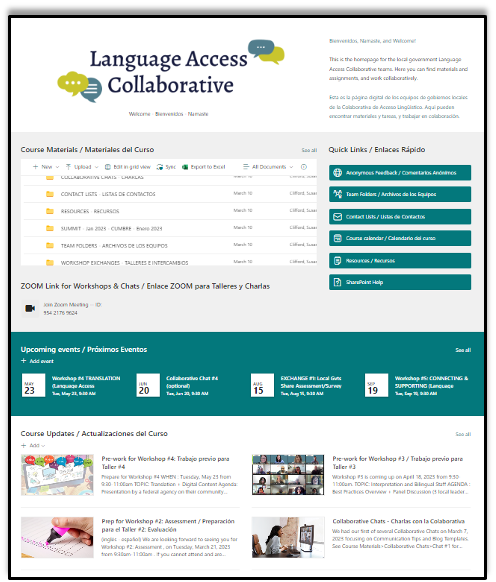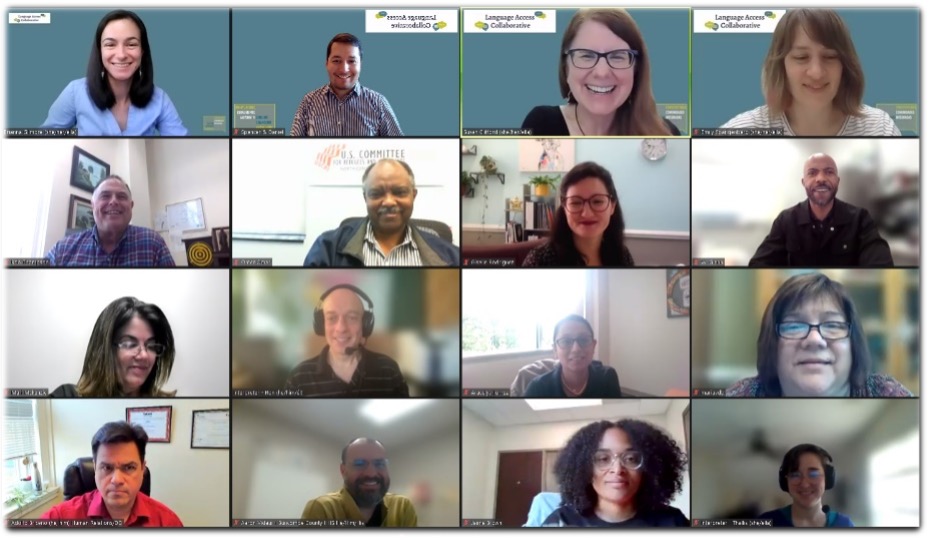BIC's Language Access Collaborative Mid-Year Update: Workshops Facilitate Learning and Exchange
En español aquíEnergized by the successful conclusion of the Language Access Summit in late January, the Building Integrated Communities (BIC) program set about organizing monthly virtual workshops that have served to anchor the efforts of the nine Language Access Collaborative (LAC) teams. With the ultimate goal of enabling these teams of local government and community-based organizations to create or expand localized language access plans, BIC’s Language Access Coordinator Susan Clifford has now led four workshops around the themes of resources, assessment, interpretation, and translation. As with all other aspects of this initiative, these meetings are entirely bilingual in English and Spanish, and serve to share best practices with the Collaborative and create spaces for the teams to exchange experiences and support each other.

More recently, the LAC reached an important milestone: the teams compiled and submitted internal language access survey reports that polled their city and/or county government departments on their experiences and readiness to provide services in languages other than English. Since the reports will help Collaborative teams assess and build upon existing internal resources, and identify gaps, they represent essential steps toward crafting or expanding language access plans. Future programming in the Fall will continue to aid the Collaborative in this goal.
True to the spirit invoked by the “Collaborative” in its title, the LAC initiative has been a learning experience for the BIC staff as well in various ways. LAC Coordinator Susan Clifford has been meeting individually with Collaborative teams to provide technical support and gather questions and feedback to inform future resource development. In response to the identified needs and topics, this spring the LAC offered optional, bi-weekly chats to provide space for answering questions and have informal conversations around other resources such as tips on communicating with stakeholder communities. The LAC has also identified an increasing interest in language access across North Carolina and is working towards creating a Language Access Collaborative webpage to serve as a resource hub for local governments outside of the Collaborative. We look forward to continuing to work with the LAC teams in the months ahead and we remain grateful to the Blue Cross Blue Shield of North Carolina Foundation for their ongoing support.
Written by Daniel Velásquez
